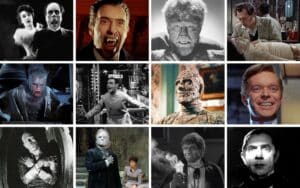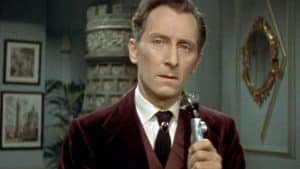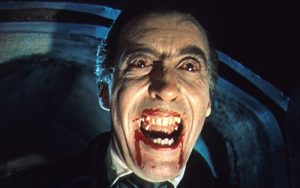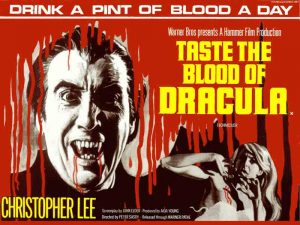Hammer’s Dracula had its UK premiere on May 22nd, 1958. To celebrate its 60th anniversary, RICHARD PHILLIPS-JONES looks back at its initial release and impact.
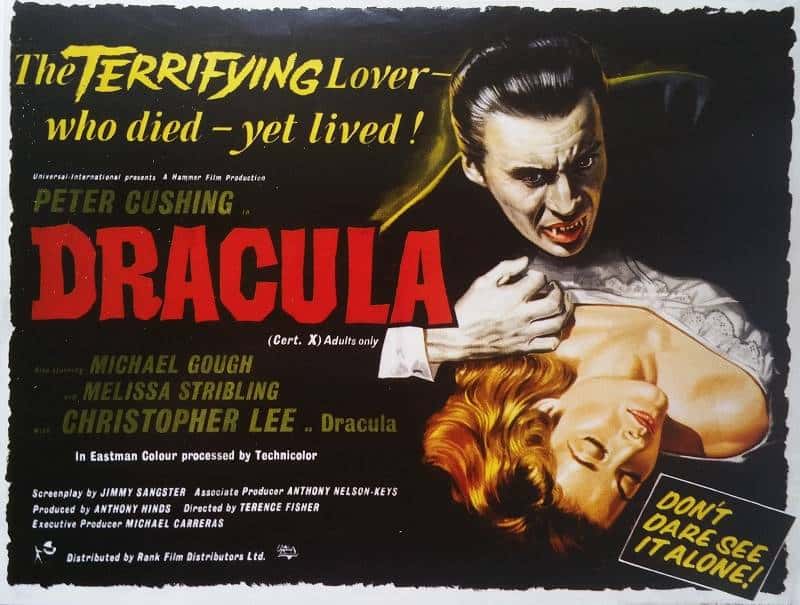
There are some for whom Dracula will always be Bela Lugosi, and that’s a perfectly reasonable stance to take. It was Lugosi who gave the character cinematic life in the exciting new era of sound-on-film and would provide film history with one of its most enduring icons. That makes it all the more remarkable that Christopher Lee’s take on the character was able to claim its own iconic status.
In order to understand the impact of Hammer’s Dracula upon its original release, it is perhaps necessary to consider the state of the Hollywood horror film at the time. Universal’s horror series had continued into the 1940’s, but increasingly depended on the novelty of combining multiple monsters into one film, before pairing them with their successful comedy team Abbott & Costello for laughs, with diminishing returns: Abbott And Costello Meet The Mummy (1953) would effectively mark the death knell for both Universal’s monster series and the duo’s tenure at the studio.
In any case, audience tastes had moved away from Gothic chills to more science or outer-space related horrors, often in the form of creatures enlarged to gargantuan proportions by atomic energy or radiation. Universal themselves had Tarantula (1955) and The Deadly Mantis (1957), whilst rivals came up with the likes of Them! (1954) and It Came From Beneath The Sea (1955).
In this landscape, it was a bolt out of the blue when Warner Bros picked up distribution of Hammer’s The Curse Of Frankenstein (1957) and cleared up at the box office. There clearly was still an appetite for Gothic horror after all, and Hammer’s approach gave it just the fresh blood it needed, with a healthy dash of Technicolor. Dracula was an obvious next project for the company, but there was the legal issue of Universal’s ongoing rights to the property to overcome.
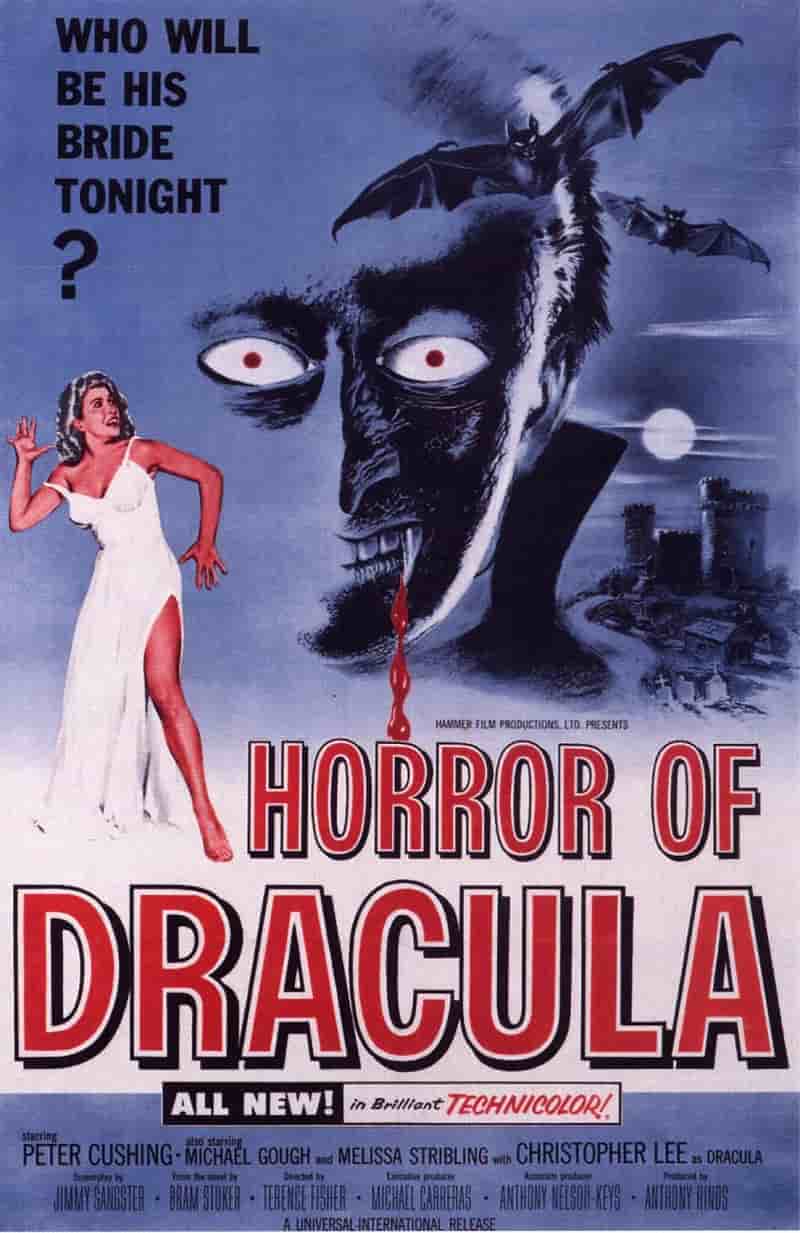
It was clear that Hammer needed Universal’s cooperation, and a deal was reached giving the studio distribution rights throughout most of the world, in return for allowing Hammer to make the film. What wasn’t so widely known was that Universal arguably needed Hammer even more than Hammer needed them.
The studio was in dire straits by 1958 and had even shut down production entirely at that point, selling their backlot to MCA (who would buy the company outright in 1962) to keep their head above water. It was somewhat ironic that the massive success of Hammer’s production of Dracula would pull Universal out of its financial hole, just as their own monster cycle had saved them during the depression. In retrospect it’s quite sobering to think that, without Dracula’s success, Hollywood’s oldest film studio may very likely have gone out of business.
It can’t be overstated what a dramatic departure it was when audiences first saw Lee’s Dracula appear, not as an obvious villain or thug, but as a tall, handsome and somewhat cultured figure, articulate and with more than his fair share of charm.
Where Lugosi’s Dracula perhaps seemed slightly incongruous once he left his castle and headed out into society, Lee’s portrayal makes it clear that this is a Dracula who would be equally comfortable in urban society, charming his way into the affections of unsuspecting folk before draining them of their blood, then demurely heading back to his discretely located coffin before sunrise. This was a fascinating avenue which Hammer would sadly not follow up (and a particularly missed opportunity as they moved the character into 1970’s surroundings), but the possibilities are clear to see in his first outing.
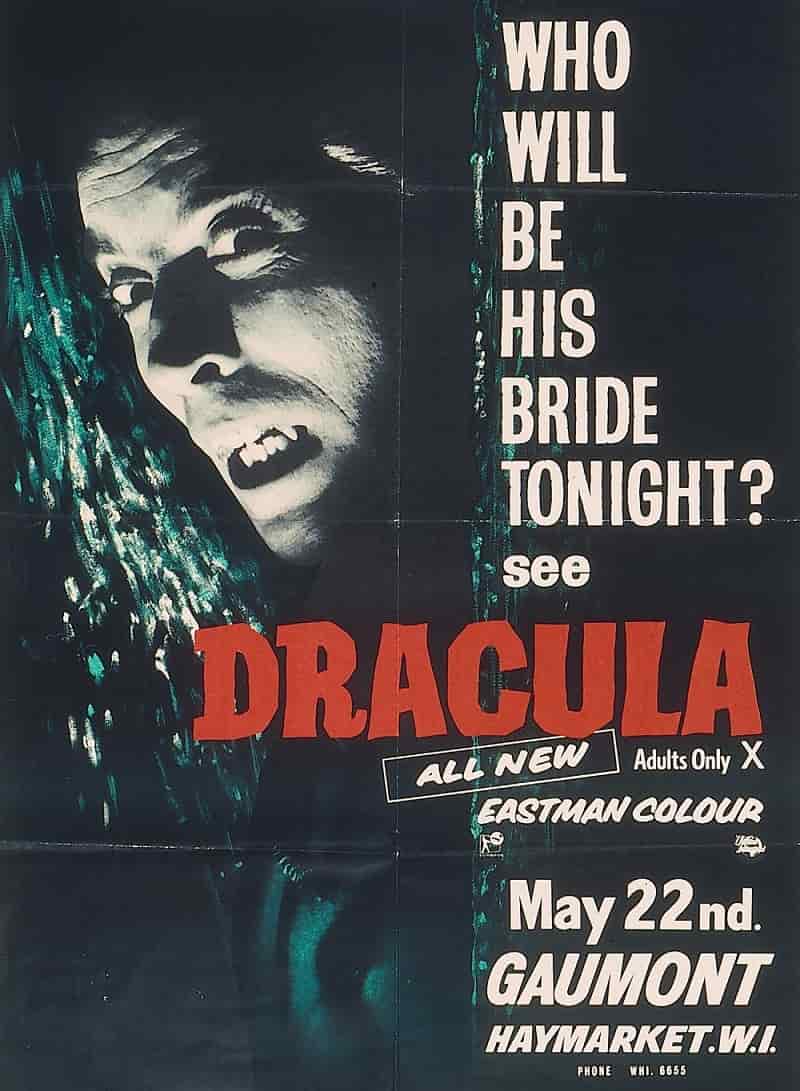
There are some who have declared Dracula to be the greatest horror film of all time. I’m not about to contradict them. It might be argued that Hammer made better films: better executed, better performed, better on a technical level. Indeed, with some justification, The Brides Of Dracula (1960) gets many viewer’s nods as their best vampire film, but I would argue that even that fine work can’t match Dracula for its sheer exuberance and pacing, raw enthusiasm, its devil-may-care attitude in reinventing its source, and the sheer rollercoaster of a ride which comes from a group of people who somehow know they have become involved in something very special and just go for it. As Terence Fisher later said, “The filming of Dracula went like a dream. Everything worked”.
Hammer’s preferred on-set substitute for wine was Ribena, so it seems fitting to pour a glass of that same beverage and raise a toast to Dracula, 60 years from the day it began entertaining British audiences. Most of the talents involved in its creation are no longer with us, but their screen immortality is assured. It remains my all-time favourite film.
In memory of John Galton (1948-2018)


